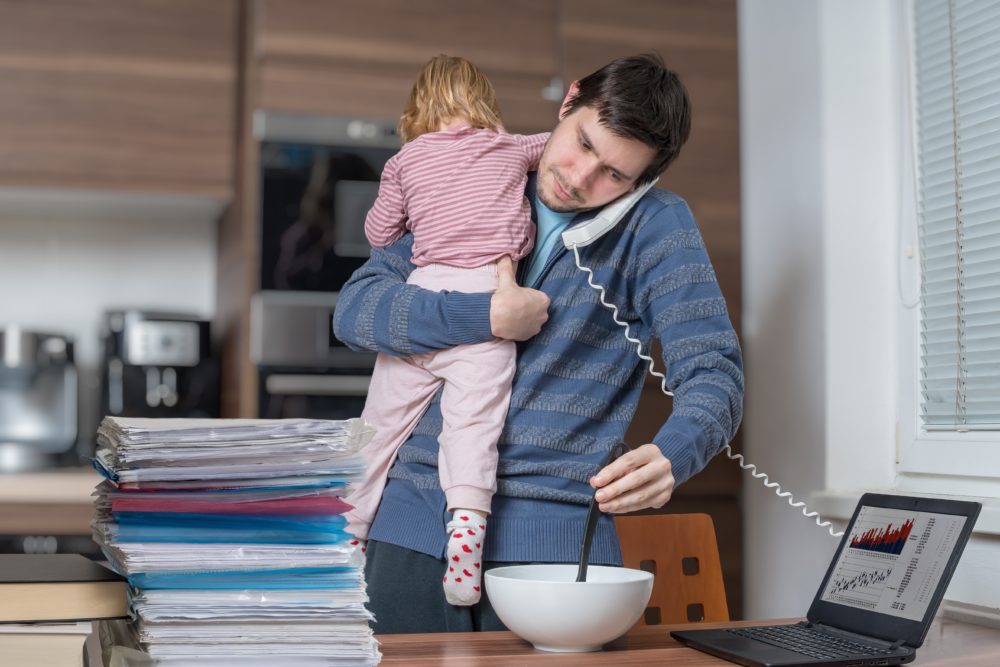
Exploring careers in construction
Construction is a huge industry that spans everything from architecture and house building...read more
Government guidance sets out which working dads are classed as key workers, and can therefore send their kids to school

Key workers can send their children to school during lockdown. However there’s been some confusion over what constitutes a key worker. And reports of schools taking different approaches. Some will accept children if one parent is a key worker, others only if both parents are key workers.
The government guidance issued this week is clear. Only one parent needs to be a key worker for their children to be eligible to go to school. However it also states that every child that can be safely cared for and schooled at home ought to be.
Parents can use childcare bubbles and support bubbles for childcare. However these should not be used in a way that could add to the spread of the virus. We’ve covered the childcare options here.
Here are the categories that qualify as key workers:
Health and social care: including doctors, nurses, midwives, paramedics, social workers, care workers and other frontline health and social care staff including volunteers; the support and specialist staff required to maintain the UK’s health and social care sector; those working as part of the health and social care supply chain, including producers and distributors of medicines and medical and personal protective equipment.
Education and childcare: including nursery and teaching staff, social workers and specialist education professionals.
Public service: including those essential to the running of the justice system, religious staff, charities and workers delivering key frontline services, those responsible for the management of the deceased and public service journalists and broadcasters.
Local and national government: this is limited to those administrative occupations essential to the effective delivery of the COVID-19 response or delivering essential public services, such as the payment of benefits, including in government agencies and arms length bodies.
Food and other necessary goods: including those involved in food production, processing, distribution, sale and delivery as well as those essential to the provision of other key goods (for example, hygienic and veterinary medicines).
Public safety and national security: including police and support staff, Ministry of Defence civilians, contractor and armed forces personnel, fire and rescue service employees (including support staff), National Crime Agency staff, those maintaining border security, prison and probation staff and other national security roles, including those overseas.
Transport: including those who will keep the air, water, road and rail passenger and freight transport modes operating during the COVID-19 response, including those working on transport systems through which supply chains pass.
Utilities, communication and financial services: including staff needed for essential financial services provision, the oil, gas, electricity and water sectors (including sewerage), information technology and data infrastructure sector and primary industry supplies, as well as key staff working in the civil nuclear, chemicals, telecommunications (including but not limited to network operations, field engineering, call centre staff, IT and data infrastructure, 999 and 111 critical services), postal services and delivery, payments providers and waste disposal sectors.
The Department for Education says schools can ask for proof of employment to check people are key workers.
The Early Years Alliance has criticised the list for being too broad, placing the onus on employers to decide who is a key worker and making it difficult for childcare settings to anticipate demand. Neil Leitch, CEO of the EYA, said: “Given how broad and open to interpretation the list is, who makes the final decision on whether or not someone’s occupation should be defined as ‘key’? The guidance states that workers should confirm whether or not their role is critical with their employer. This makes it very difficult for early years providers to plan for potential ‘partial closure’, as they still cannot be certain as of today how many of their parents may fall into this category.
“The government has had plenty of time to prepare for this, and many were expecting much clearer, more definitive guidance on which parents and children can expect to receive childcare as of next week. Instead, it seems as though the burden is being passed onto employers and providers during what is already a critical time.”